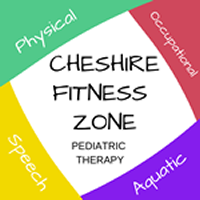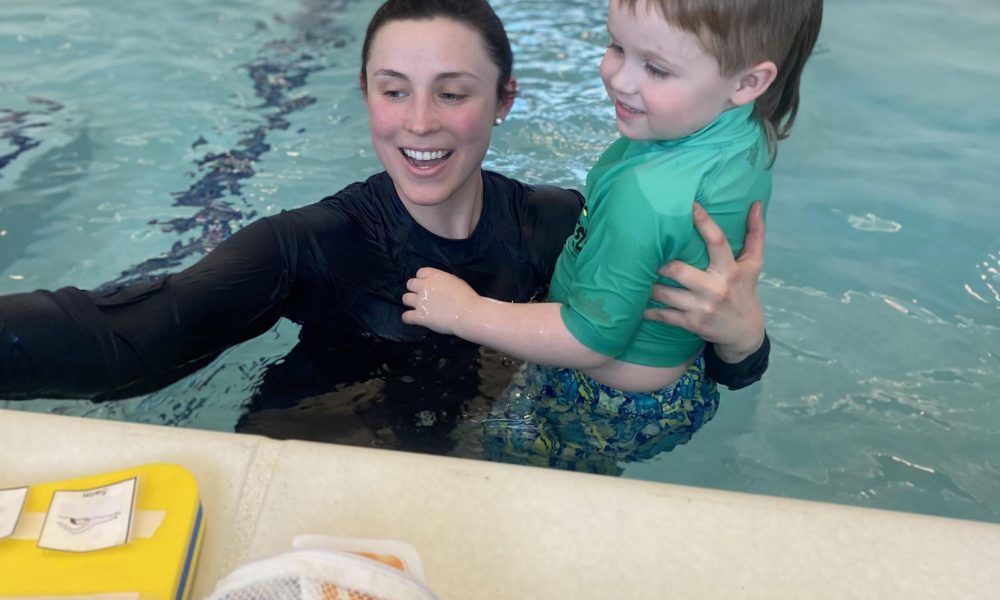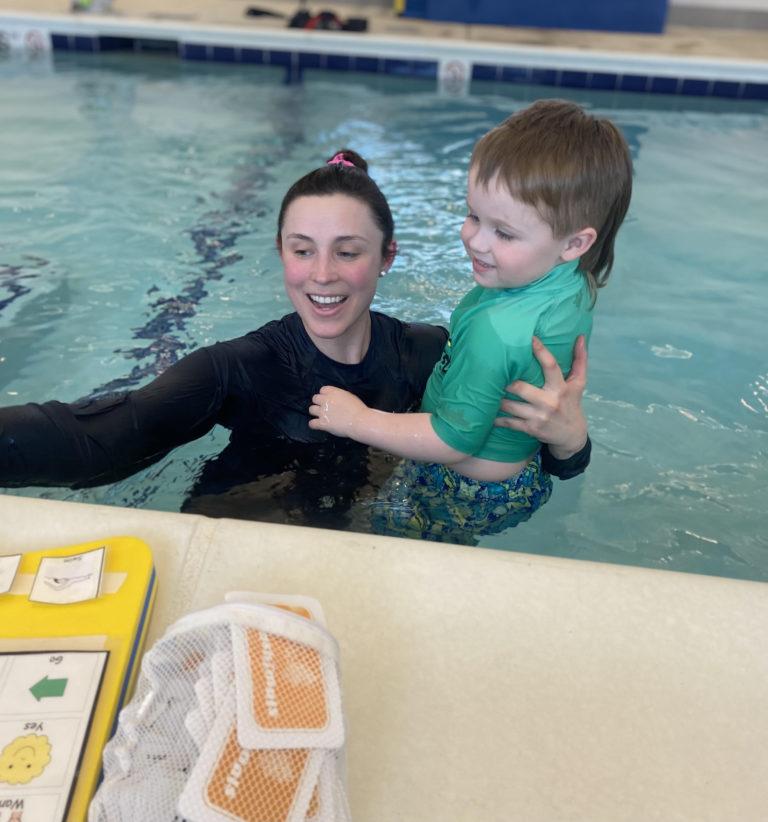
Did you know Cheshire Fitness Zone opened a pool location in January?
At our pool location in Cheshire, we offer aquatic therapy to children with various physical, cognitive, and sensory challenges. Our aquatic therapists have extensive experience working with kids that range in age and ability!
What is Aquatic Therapy?
Various patient populations can benefit from aquatic therapy, and it is an important rehabilitation process for many that have conditions including, but not limited to, Cerebral Palsy, Down Syndrome, Muscular Atrophy, Muscle Dystrophy, Autism, Orthopedic Injuries, and Musculoskeletal Pain Syndromes.
Aquatic therapy targets the same skills that land-based therapies do, including righting reflexes, strength, balance, coordination, and functional mobility.
There are many benefits to aquatic therapy, as water provides unique opportunities that are not possible with traditional therapies. Some benefits include enhanced motor skill development, accelerated rehabilitation and recovery, sensory stimulation, and enhanced confidence and independence.
Benefits of Aquatic Therapy
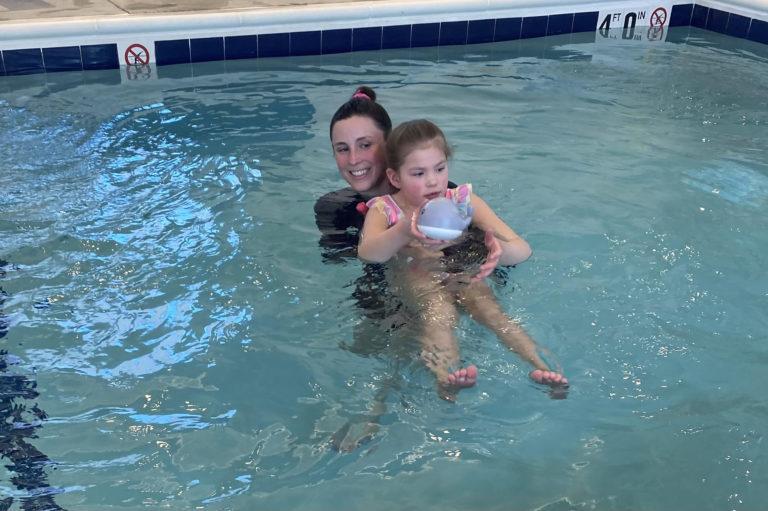
Enhanced Motor Skill Development
Water therapy is a buoyant environment that helps decrease the amount of weight bearing and the force of stress placed on the joints. This helps make functional tasks easier for a child to perform (I.e., sitting, crawling, standing, or walking) compared to when they attempt these tasks during land-based therapy sessions.
The viscosity of water provides an excellent source of resistance that allows a child to improve their muscle strength and motor skills without the need for weights
The warmer temperature of the water reduces the amount of muscle guarding/stiffness/tone, reduces pain, improves circulation through blood vessel dilation, and helps to improve extremity range of motion.
Accelerated Rehabilitation and Recovery
Kids that have experienced injury or undergone surgery may benefit from water therapy during their rehabilitation process. The buoyancy of the water reduces weight-bearing on body parts, allowing the child to move with less stress and pain. Water therapy can also help increase circulation, promote healing, reduce swelling and lead to a quicker recovery.
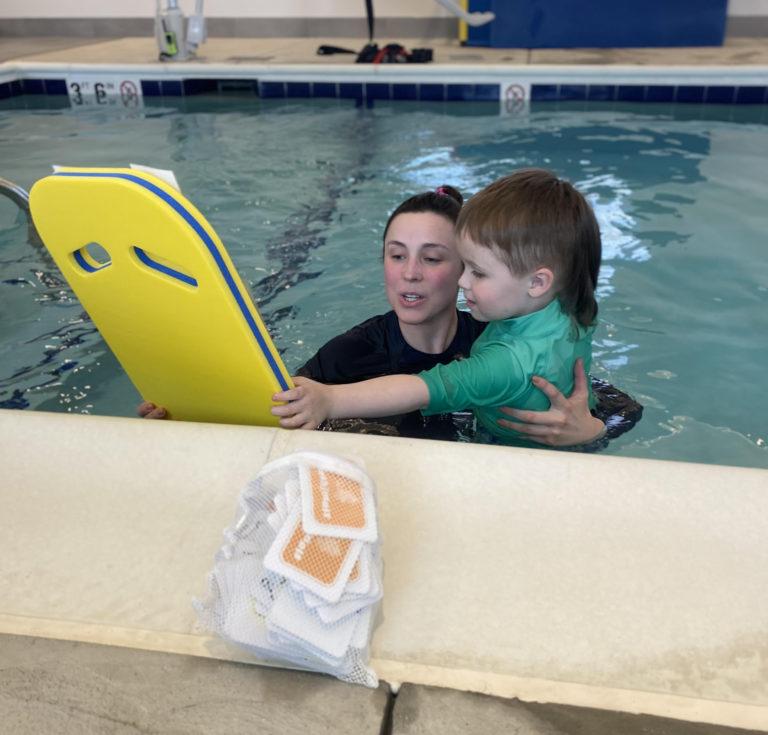
Sensory Stimulation
Aquatic therapy creates a unique environment for sensory stimulation for kids that have sensory processing disorders or on the autism spectrum. The water creates hydrostatic pressure, the force exerted by the water on a submerged body. This property of water helps to “squeeze” the individual in the water and as a result allows that individual to feel more secure and relaxed and therefore can help to reduce anxiety.
Enhanced Confidence and Independence
Engaging in aquatic therapy can help boost a child’s confidence and independence as they begin to learn new skills. Since water therapy helps them practice mobility and activities, this gives them more motivation and self-esteem to be more mobile in their daily life.
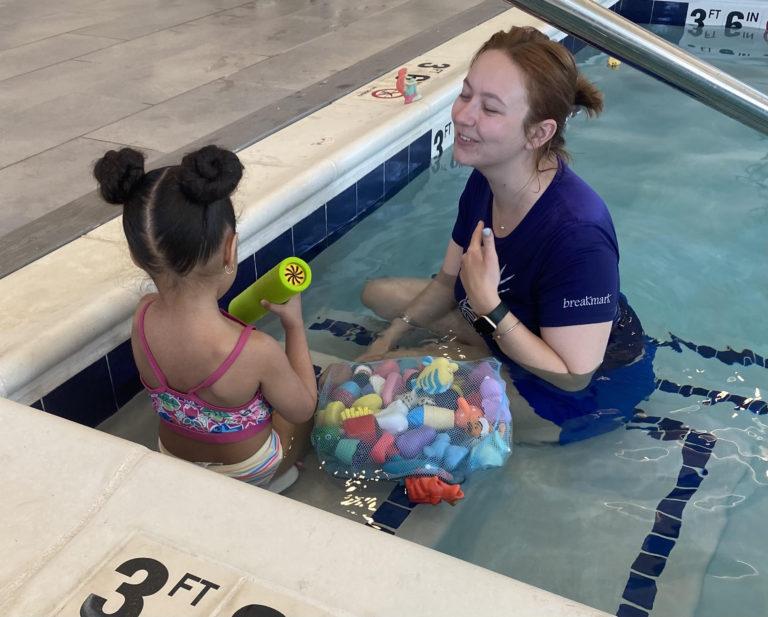
Pediatric aquatic therapy can offer many benefits for children with various cognitive, physical, and sensory challenges. From improving motor skills and sensory integration, supporting social interaction, and boosting confidence, aquatic therapy provides an effective approach to pediatric therapy.
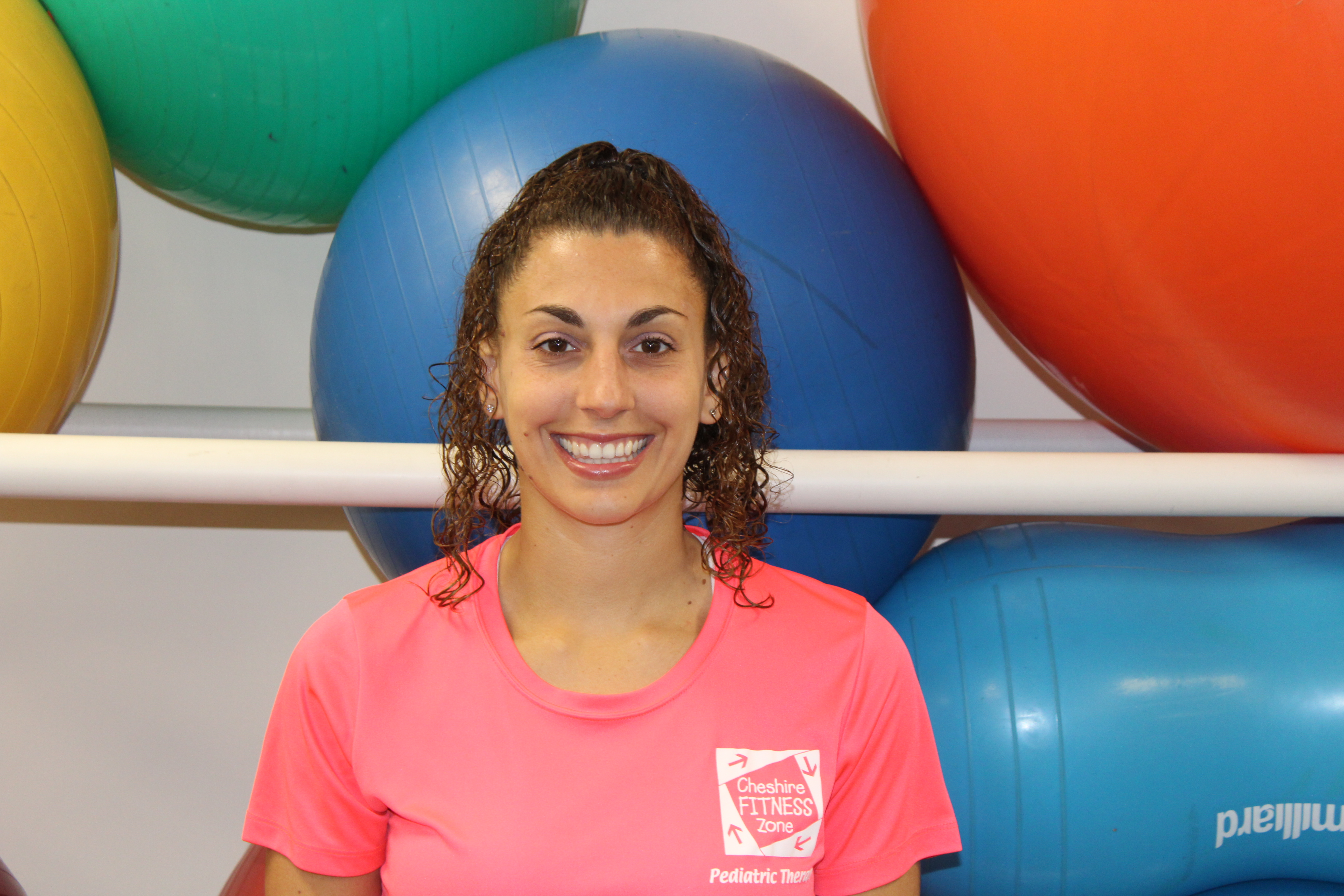
Meet Aquatic Therapist Amanda Morgan!
This blog was written with the help and expertise of Amanda Morgan, a Physical Therapist specializing in Aquatic Therapy at Cheshire Fitness Zone. Amanda graduated from Sacred Heart University and has been with CFZ since 2012.
